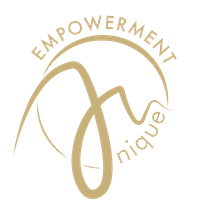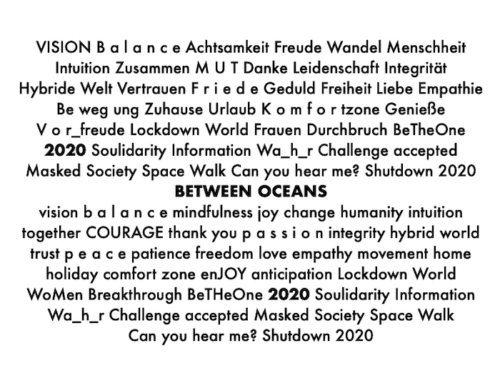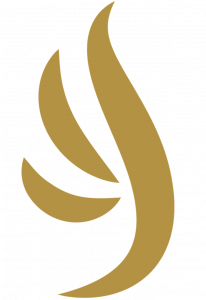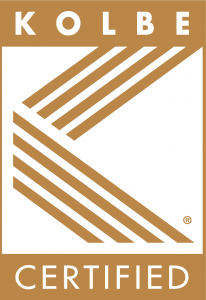Information is not knowledge. The only source of knowledge is experience. You need experience to gain wisdom.
– Albert Einstein
We live in a time where ‘reliable sources of information’ have become rare although the communication possibilities themselves are becoming more diverse, complex and easier every day and worldwide – perhaps that is the reason why 🤔.
The Corona pandemic has shown us once again how important serious, critical and ‘credible’ journalism, that educates and informs, has become. The pandemic has also shown us how open and receptive humanity is to conspiracy theories, ‘fake news’ and manipulative news. In the age of social media, journalism can no longer control access to and dissemination of information.
In order to identify and track down the so-called ‘fake news’1Fake News= A term formerly useful for describing websites consisting entirely of intentionally fabricated news stories, but now used to describe virtually anything that does not mesh with one’s own views. (urbandictionary.com) , to get correct and ‘true’ information, it is sometimes necessary to research for a longer period of time and, above all, to read the texts until the end. – But who does always stick to it?
I am very grateful that I have developed a very good feeling for ‘exposing’ fake news through many years of practice. I use social media for communication and information gathering in both private and professional life. Therefore, I am always irritated when I see how ‘intelligent’ people are influenced by polarization and manipulation and are no longer able to reflect and listen to other opinions. It also makes me wonder how many users simply signal fear by not posting their opinions publicly and thus becoming ‘silent’ followers.
As soon as I enter the world of the Internet, I know that ‘good and evil’ can be found – I ground myself in my daily morning prayer, in which I also ask for protection from negativity – this helps me personally, without fear or worry, to enjoy the positive benefits of these fascinating communication possibilities.
We are in the middle of an ‘information war’ – what is true and what is false?
And here:
JU’S 3 QUESTIONS OF THE MONTH
1. How can you find your way through this information flood? How do you distinguish ‘reliable‘ from ‘manipulative‘ sources?
2. What is your personal strength in researching and passing on information? Which social media type are you?
3. How do you manage to follow your instincts in this ‘information conflict‘ and listen to your inner voice?
🙎♀️Katalin S. 🇭🇺🇮🇱🇦🇹
I first met Katalin at a Workshop at the Grandmotherturtle Center.
👩🏻Carina Pummer 🇦🇹
If anyone can be called a ‘Free Spirit’ – then Carina. We are colleagues at the HTL 3 Rennweg2HTL= Higher Technical Education Institute, is a secondary education school in Austria that permits students to acquire the university entry qualification and professional training at the same time. and I have come to appreciate her ‘open, warm, critical, humorous and philosophical’ manner. Our team-teaching hours were always very amusing. Carina writes great texts, likes to travel a lot, loves theater and art as well as running and climbing. Her life motto is ”This moment is the only one that counts.”
👱🏼♂️Nikolaus Müller 🇦🇹🇺🇸🇬🇧
I was his teacher when Niki graduated in History and Political Education in 2013. I already noticed him back then as a particularly interested, charming, polite and intelligent young person and ‘today’ our common interest in innovation and future topics has brought us together again.
Niki received his MSc “Innovation&Management” from Imperial College London, one of the top 10 universities in London and currently works at Amazon in London.
“What would you do if you weren’t afraid?” is Niki’s motto in life and he loves traveling, photography and all activities that generate a lot of adrenalin: surfing, skydiving, cliff diving, climbing, skiing etc.
🙎♀️Katalin S. 🇭🇺🇮🇱🇦🇹
Answer 1
I do not read a lot of news. I am informed about the changes and updates about the current situation in Vienna through emails from WKO (Austrian Federal Economic Chamber) and IKG (The Jewish Community of Vienna). I follow some Israeli sites on Facebook and Instagram.
Answer 2
I simply filter what I am watching on Youtube and who I follow on social channels. I am always happy to find and share a new workout, healthy fast recipes or a good shopping offer.
Answer 3
I read and listen only to the channels I know and like. If I have a funny feeling, I simply stop reading or listening.
👩🏻Carina Pummer 🇦🇹
Answer 1
Although I have great trust in the newspapers I read, I do research every now and then – especially when the reporting seems to be too one-sided and when I am particularly interested in a topic. I also consult with friends (this makes up a large part of my main research), because they seem reliable and intelligent enough and sometimes, we go “hunting” together because it can occur that we only have one opinion but no sound knowledge. That means that I look for my “corrective” in and with my friends. More can be achieved together, and I don’t want to get lost in a so-called bubble.
Answer 2
Unfortunately, I am not a social media type at all. I only use social media to visit interesting sites for vegans (I like to research there) and to stay in touch with friends from all over the world. I only use Facebook because everything else is too stressful for me. If an article is sent to me via friends, which happens frequently, I do research on the Internet and look for articles in German and Austrian newspapers that seem trustworthy, such as “Falter”, “Zeit” or occasionally “Süddeutsche” or “Profil”. When researching, I stick to linked references and follow them up. Where do they lead to? Do they only lead to dubious websites that support conspiracy theories? I’m not a friend of “black” or “white” either, because the truth usually lies somewhere in between. In my opinion not every theory of one or more conspirators is 100% nonsense and there are often interesting cross references in the articles, which in turn raise questions that need to be answered. To call a person like Bill Gates, for example, only a “philanthropist” or “mass vaccinator” is not enough for me.
Answer 3
As I meditate every single day and try to stay away from all the circling voices so that I can stay with and within myself, my inner voice is very robust and stable and screams quite loudly when it seems to be a little bit dubious. I am certainly not one of those lemmings who blindly follow the authorities and parrot what others think is right or wrong. As so often, proportionality must be right. I sometimes have the feeling that people don’t listen to the facts once opinions are formed – at least that’s how I feel about the Covid-19. Also, with the “facts” it is necessary to look through different sources. My inner voice remains stable even if the majority thinks differently. Since I am used to the fact that the way of life of a large part of society is different, I don’t mind standing there alone with my inner voice (but it hardly ever happens because – as I said – my social environment is also a little “different” and can look outside the box – thank God!)
👱🏼♂️Nikolaus Müller 🇦🇹🇺🇸🇬🇧
Answer 1
While it was recently the biggest challenge to find enough information on specific topics on the internet, nowadays it is all about choosing from the incredible amount of information, the right one. I try this mainly with three dimensions:
- How is the information brought to me and which people interact with the source: Who sends me the information? Which people write comments, share and/or link the post or article? If the contribution comes from people, I consider to be trustworthy, I automatically consider the information as solid.
- How reliable is the platform on which the information is distributed: Which platform is used to distribute the information? Does this platform have a reputation for distributing manipulative information?
- How scientific is the article: Does the article refer to trustworthy sources or experts? Do other trustworthy sources link to the article?
Answer 2
As I studied five years at three different universities and I developed a strong personal interest in scientific working methods, I have also developed a skill for quickly identifying articles that are not very well founded.
Unfortunately, I am using social media a lot. However, I try to keep my feeds free from dubious sources. As soon as a post from a dubious source is flushed into my feed, I use the platform-specific functions (e.g. “Hide all from Page X” on Facebook) in order not to have any further posts from the same source displayed.
Answer 3
I think in times like these, it is simply important – whether online or offline – to approach information with a certain skepticism. As soon as I read something that makes me think “That somehow doesn’t fit at all with the other information I know about this topic”, the alarm bells ring automatically, and I start questioning. Over time I have built up a strong confidence in my own “Bullshit Detector”. 3A hypothetical, mental device that represents a person’s ability to detect deception, dishonesty, corruption, fraud, insincerity, hypocrisy and falsity in others. (urbandictionary.com) Of course it also helps to build up a certain basic level of knowledge about current topics.
#BetweenOceans2020






Leave A Comment